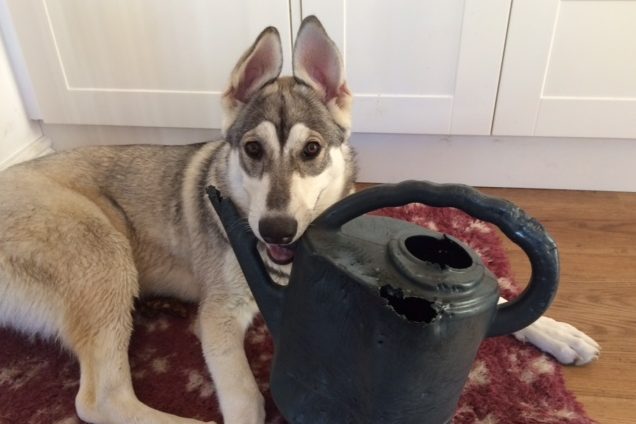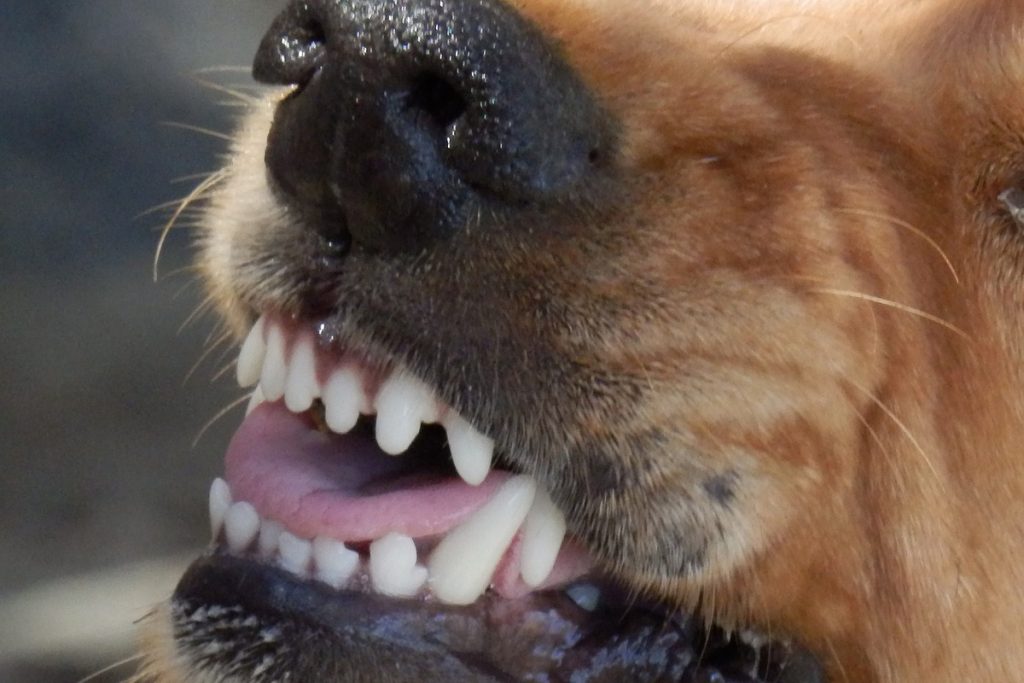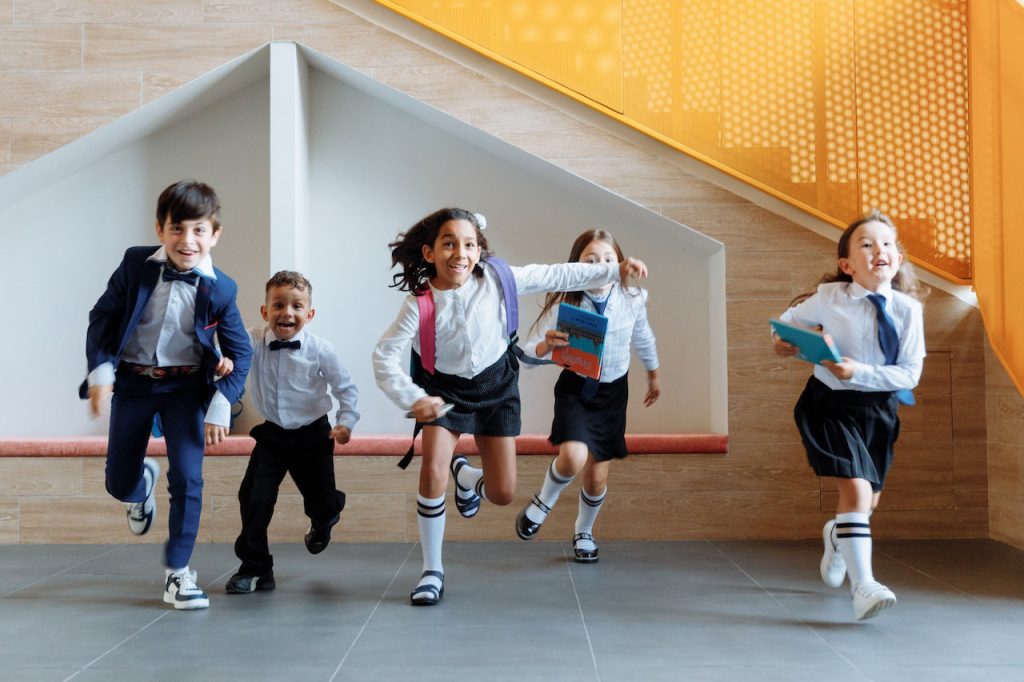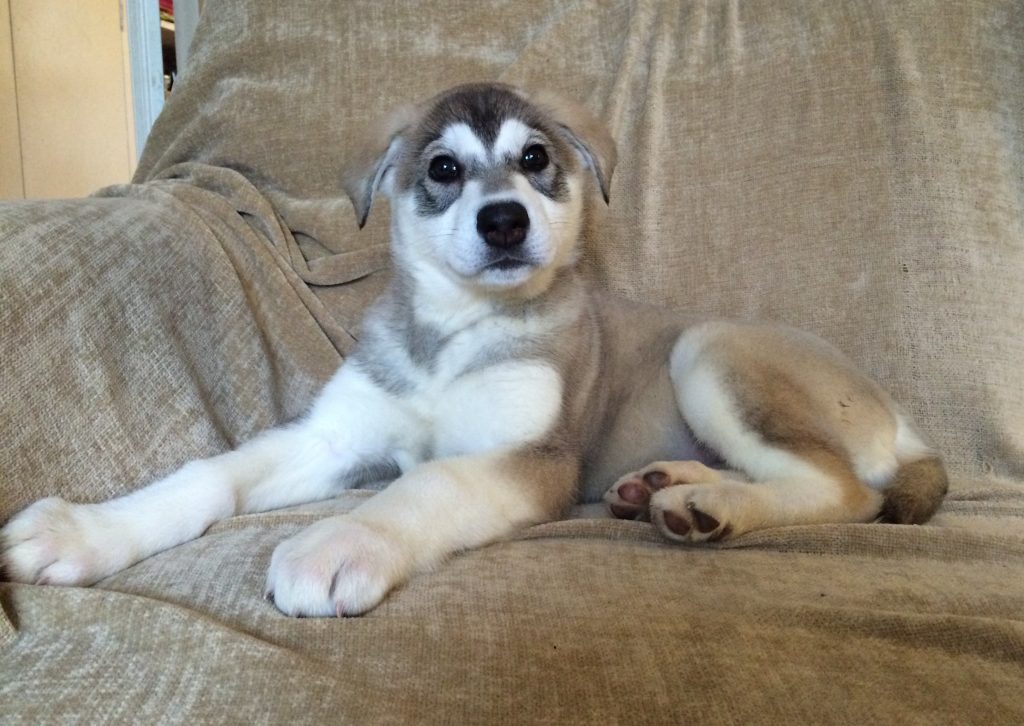
I’m living with my second adolescent puppy in two years, and I’m filled with empathy for our clients as puppies of this age are really hard work! The toilet training and bitey stage seems a piece of cake compared with the trials of later adolescence. Hormonal and neurochemical changes galore occur in adolescence along with new found confidence that can make you wish for a return to the baby puppy days when sleepless nights were your main worry.
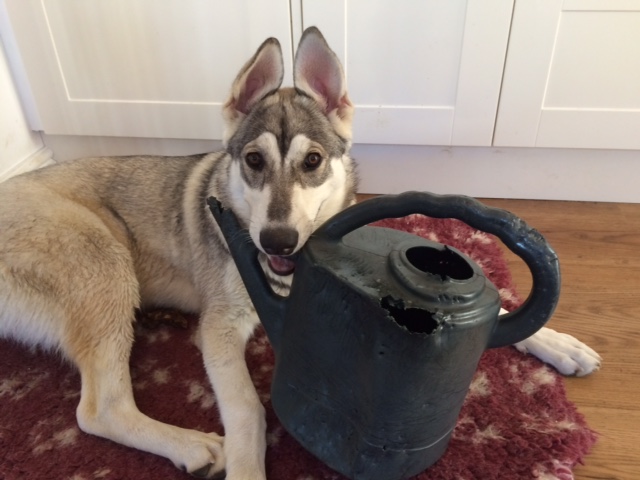
A common issue is a love of other dogs that knows no bounds- Sylvi puppy currently suffers with this affliction, she is dog obsessed and I’m sure many of you can relate to it too. If she sees a dog (any dog- she’s not fussy), at any distance, she’d like to go and talk to it and ideally play with it.
Her perfect recall of her younger months has disappeared along with her baby teeth (I’m glad I have video evidence to remember her perfect recall by). I know from experience that this stage will pass if it’s handled properly and the terrible teen adolescent will eventually transform into a much nicer (and calmer) adult- eventually. Did you know that northern breed types like Sylvi don’t properly mature until they are around 3? Thankfully smaller breeds often mature faster!
So what can you do to help turn your terrible teen with a dog obsession into a well-mannered and more obedient adult?
- Love your long line and don’t leave home without it. Never a flexi, always a long line and always attached to a body harness not a collar. A long line means you ensure you have control of your dog at all times and that they can’t practice the things that you don’t like- remember that practising behaviours makes them become more ingrained and more likely to be used as a default. Recall training is so much easier with a long line as you can set your dog up to succeed.
- Think about ditching the food bowl and feeding meals on walks so that you can continually reinforce behaviours that you like. Sylvi pretty much always has half her breakfast on a walk (300g of lightly cooked beef was delightful today!!). Treats need to be high value too, no one wants to work for kibble at this age (or ever really- unless they are perhaps a Labrador!).
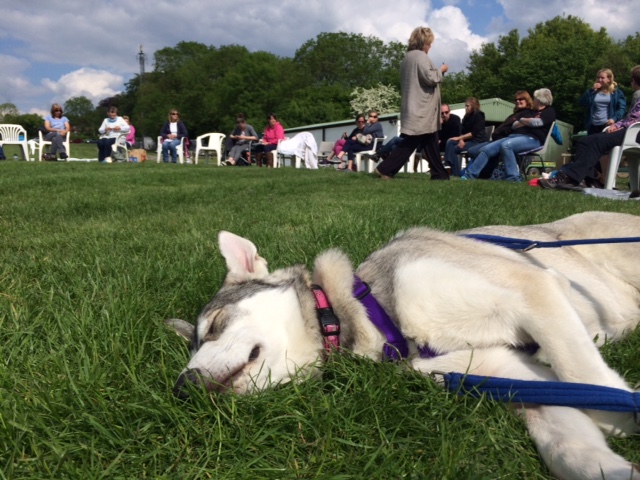
- Don’t withdraw your dog from social contact. As tempting as it may be to save embarrassment and to give yourself an easy life, don’t completely avoid other dogs. Social contact with their own species is crucial to allow dogs to continue to develop their communication skills and grow into well rounded adults. Ensure you set up play dates with compatible friends, walk with friends dogs and continue controlled socialisation like you did in early puppyhood. Just make sure you aren’t allowing your dog to practice inappropriate greetings and OTT play and ensue that you always check before they interact with other dogs. Play dates can be a great way to work on recall away from distractions if you and a buddy both work on recalling your dogs away from play- wait for a pause in play to do this. Work on the Premack principle (getting your dog to something before they get to do the fun stuff), so ask for a hand target or eye contact before you let them play with their pals. This can develop into a recall before going to play.
- Get back to classes, some classes are set up to help adolescents work on their self control and recall around other dogs. Ensure classes are well run, all interactions are carefully managed and that dogs mix with appropriate dogs. We run several classes for adolescents at Dog Communication to help them get through this tricky stage.
- Practise lots of calm behaviours on walks– don’t allow walks to become highly aroused, sessions of just crazy running. Low arousal is what you want to practice for now. Plan in lots of scent work, teach your dog to find scented toys on walks, scatter their food on walks. Work on TTouch ground work using natural features like logs. Plan outings to dog friendly venues where you can continue socialisation and work on self control.
- Try and build a love of toys. We’re currently loving bungy tug toys on walks and Puller rings. Playing with toys with your dog helps them to remember that YOU are fun too and it’s not all about other dogs (okay it’s still probably mostly about other dog but at least you start to get a look in!). Keep a toy that you only use on walks- make it special and not available at other times.
As an end note, as annoying as it is to have a dog-obsessed teenager you’ll be glad one day. When they grow up but retain their adoration of other dogs, you’ll be thankful- most of our doggy clients have difficulties around other dogs and their owners would give anything to have a dog that loves other dogs (even if it is a bit too much!)

Copyrighted content by Laura McAuliffe, Dog Communication. If you like my posts, please share them using the share button. Please don’t copy and paste or edit my images. Sharing my posts allows me to reach more people and share the message.
